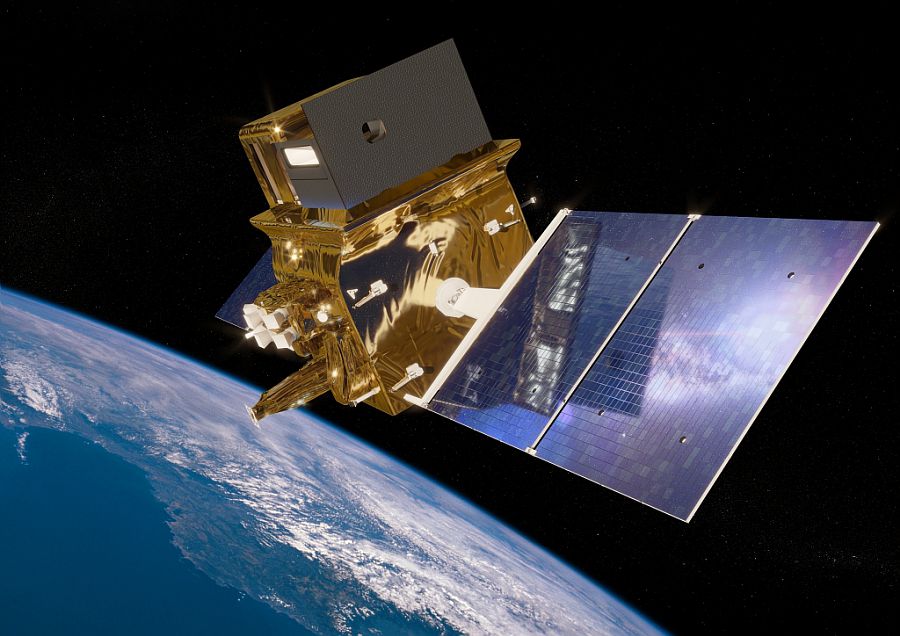Trishna
Thermal infraRed Imaging Satellite for High-resolution Natural resource Assessment
Technical support for CNES

Mission
Measure surface temperatures all over the globe
Satellite / Instruments
Trishna satellite
TIR (Thermal InfraRed)
VNIR/SWIR (Visible and Near InfraRed/Short Wave InfraRed)
Skills
Geometric modelling
Date
Expected launch : 2025
The Trishna project
Vegetation plays an important role in the functioning of the Earth’s surface as it regulates the exchange of energy and substances (CO2, H2O, etc.). Visible sensors have made it possible to monitor the evolution (growth, maturity, ageing) of vegetation from space. However, plants can suffer from water stress, which raises the temperature of the plants. This stress can be observed in the infrared thermal range.
Currently, such space-based thermal measurements only exist at a resolution of about 100 metres at a monthly frequency, while at the global daily scale they are only available at kilometre resolution.
The Trishna mission, a collaboration between CNES (France) and ISRO (India), will collect thermal infrared images of the Earth’s surface with a resolution of 57 metres and a revisit every three days.
![]()

Illustration of Trishna satellite
© CNES/ill./REGY Michel, 2021
The Trishna satellite is therefore a specialised infrared and earth observation satellite. It observes vegetation zones and monitors soil temperatures. In this way, it can monitor the evolution of crops and vegetation around the world.
The unit is involved in the geometric modelling of the acquisitions sent by the satellite.
To find out more about the Trishna mission, visit the CNES website for Trishna.
![]()
The objectives of Trishna
Part of the unit is based in the CNES offices in order to best meet the needs of the project.
The objective of the Trishna project is to understand the local evolution of biological (water stress, transpiration), physical (evaporation, sublimation, plume zones) and climatic (global observation over time) phenomena related to the water cycle.
Key words
observation, satellite, earth, studies, geometric modelling, Trishna, CNES, France, ISRO, India, thermal sensor
SCIENCE FOR EARTH CARE
The Earth Observation Unit of Magellium is an expert in optical space missions and geophysical and biophysical applications. The EO unit provides high level of expertise and full capacity on the whole processing chain, enabling it to respond to all projects from the greatest space orders such as ESA and CNES.

